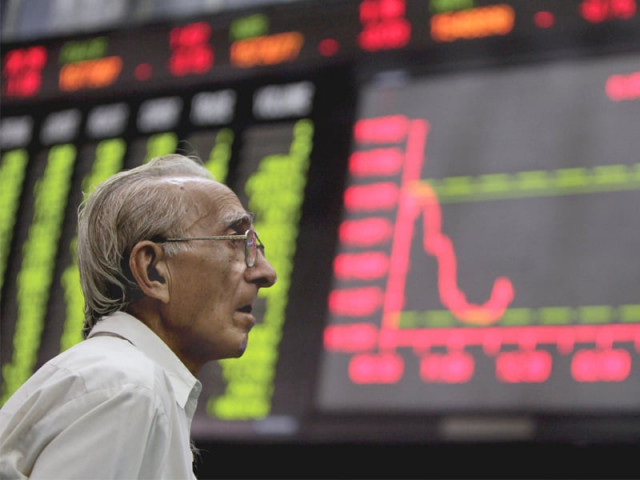Analysis: Fear of a second global recession hits KSE
Friday’s sell-off in stock markets is a stark reminder of global linkages that continue to bind.

Economists are not yet certain whether or not the world economy is about to head into a second downturn, but the markets – fickle as they may often be – seem to have made up their mind: a second global recession is happening.
While Pakistani markets often seem to be independent in their ups and downs, over the long run, they are highly correlated with global markets, a fact that came to the fore on Friday, when the benchmark KSE 100 index of the Karachi Stock Exchange dropped 471 point – or about 4% – almost equalling the 4.3% drop in the Dow Jones Industrial Average, the benchmark index of the US stock markets.
The wobbles on Friday demonstrate just how closely linked the Pakistani economy is to the markets of the United States and the European Union, the two largest economies in the world. More than 45% of the country’s exports go to these two markets, according to the Trade Development Authority of Pakistan.
For all the talk of ‘de-coupling’ – the idea that emerging markets in Asia have broken free of the strong correlations with the developed world – the shudders in the US and Europe matter for the entire world economy. And while Friday’s shocks took place on the equity market, the real drama is taking place in the debt markets, which rarely ever make headlines but are far more consequential for the broader economy.
Europe is coming to grips with a decade-long spending binge that happened because, after the introduction of the euro, several Southern European states, despite their profligate fiscal habits, were able to borrow money at rates very similar to the far more responsible German government.
Yet it seems that at last the world is waking up to the idea that Athens is nowhere near as competent – or even honest – with its money as Berlin. And the shock has already begun to hit the market, owing largely to an accounting rule that only the most diehard of finance nerds have ever heard of: mark-to-market.
The rule goes something like this: every bank is required to price every single asset on its balance sheet at the prevailing market rates, meaning the rates at which the last transaction involving those assets took place, even if the bank itself was not involved. This rule makes good sense: an asset is only worth as much as it can be sold for and no more, purchase price be damned.
Yet when the market begins to worry about the ability of governments to pay back their loans, this rule plays havoc in the financial system. If, for instance, the market believes that the probability of the Greek government paying back its debts is less than 100%, the price of a Greek government bond will go down, and every bank in the world will have to mark down the value of their assets.
As it turns out the market has all but given up on Greek government debt, with the Hellenic sovereign bond recently trading at half its face value. Herein lies the rub: banks are legally required to maintain a certain ratio between their assets and liabilities in order to ensure that they can always pay their depositors. If the value of their assets starts to fall, they begin hoarding cash and – most disastrously – curbing lending to businesses.
That reduction in lending can cripple entire economies “swiftly and absolutely”, in the words of US Federal Reserve Chairman Ben Bernanke. This disruption in credit is the single biggest cause of the Great Depression of the 1930s.
As businesses can borrow less, they lay off people, reducing the amount of consumption in an economy and slowing it down further, sending it into a vicious tailspin.
Owing to the sovereign debt crisis, the first concern is quite obviously Europe since it was European banks that bought most of the bonds issued by the Piigs (Portuguese, Italian, Irish, Greek and Spanish governments).
But given the immense linkages between the US and Europe, the US is not immune to such fears, which have been compounded by the drastic reduction in government spending in America and worries of a downgrading of the credit rating of the US itself.
Given Pakistan’s current dependence on the US for financial assistance, and given the linkages between our economy and that of the US and Europe, Pakistan’s economy – already barely on a recovery path – is likely to take a body blow, especially since the government here has virtually no fiscal space to undertake stimulus spending.
No one is yet certain whether this nightmare scenario will take place. Washington and Brussels may yet be able to take enough actions to avert it. Yet it appears from Friday’s selloff that many investors are not willing to take that chance.



















COMMENTS
Comments are moderated and generally will be posted if they are on-topic and not abusive.
For more information, please see our Comments FAQ